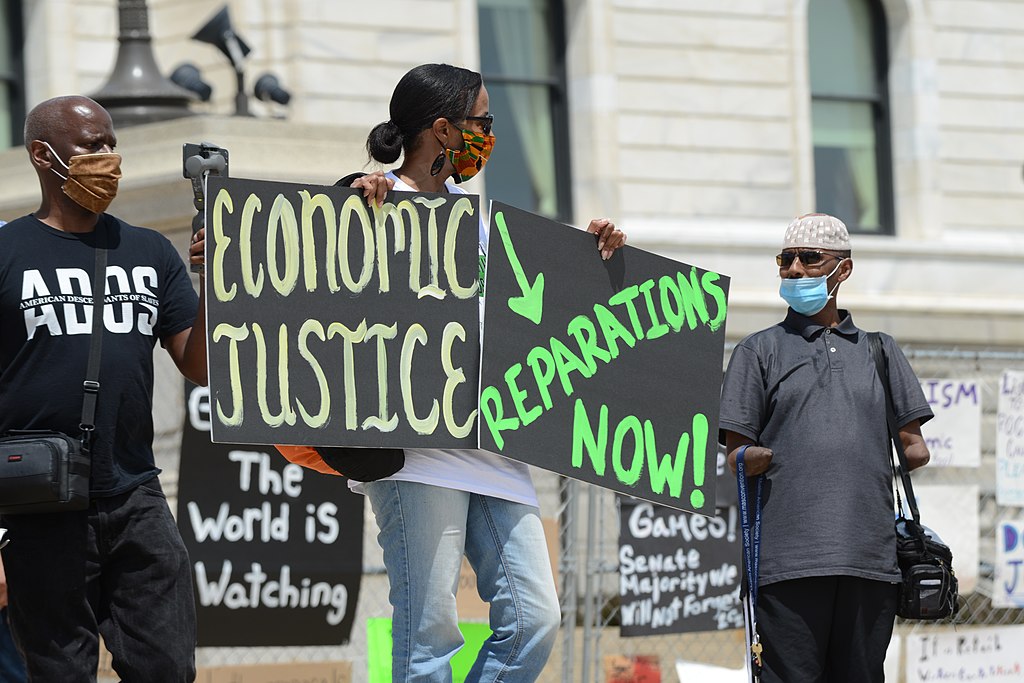
January 19, 2025
Maryland has not yet acknowledged or made amends for consequences of the systematic economic exploitation and mistreatment of Black people.
On Jan. 16, Maryland’s Legislative Black Caucus indicated that its members will support legislation that will create a commission to study reparations; their announcement closely follows the start of the 2025 Maryland General Assembly session.
According to Fox 45 News, Delegate Aletheia McCaskill, (D-Baltimore County) said, “The commission will carefully examine and evaluate a range of reparations that will not only consider financial restitution, but will also explore strategies to support and uplift vulnerable communities that continue to suffer the lingering and invasive effects of discriminatory practices rooted in systematic racism. We will confront our shared history to move closer to building a Maryland that truly lives up to its promise of fairness and equality.”
In 2024, a bill that would have established a reparations committee failed in the general assembly, per language contained in the bill, it would have allowed Maryland to “develop and administer a program to provide compensatory benefits to the descendants of individuals enslaved in the state.”
Maryland, according to McCaskill’s comments at the press conference, has not undergone any major statewide attempts at either acknowledging or making amends for the consequences of the systematic economic exploitation and mistreatment of Black people due to the interlocking systems of slavery, Jim Crow, and other discriminatory practices.
According to ABC3340, the 2024 bill would have used an increase on the taxation rate of marijuana to fund the Community Reinvestment and Repair Fund, a fund expressly designed to direct funds to low-income individuals and disproportionately impacted areas.
Sen. Jill Carter, who sponsored the bill, at the time, she said, Maryland had just started looking into legalizing marijuana.
“We are just in the beginning stages of our process of legalizing marijuana and we have made some great strides, like when we created the Community Reinvestment and Repair Fund, which is designed to put money back into, to prioritize communities of color that have most been negatively impacted by the war on drugs that unfortunately was a war mainly on poor and Black people. What this bill would do would help to infuse that fund with more money, and it’s not too much of an ask, because in doing the research for this bill, I learned we use the lowest taxation rate of any state in the country that has legalized marijuana,” Sen. Carter said.
According to The Maryland Daily Record, the reason the Maryland Legislative Black Caucus is looking to push for the study of reparations is that voters have indicated it is a top priority. Delegate Jheanelle Wilkins, the chair of the Caucus said in a press conference that Black Marylanders have let them know that they need to address.
“This is one of the issues that, when we go across the state, we do town halls, we do various events, that we hear from Black Marylanders and community members that they want to see repair of the harm and the impacts of enslavement in our state,” Wilkins said.
RELATED CONTENT: Maryland Legislative Black Caucus Advocates For Comprehensive Reforms In Healthcare, Housing, Criminal Justice, And Business Opportunities

